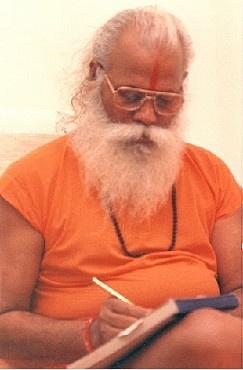When Swami Vishwatma Bawra of India visited Canada in 1978, he was presented with the problem of the religious intolerance underlying the riots that erupted in India in 1947 between the Hindu and the Muslim communities. Swami Bawra was a spiritual teacher, a guru and for most of us, spirituality and religion meant the same thing. Being from India, he was also aware of the 1947 orgy of religious identities. He was asked, "Why did the Muslim and the Hindu communities of India who are known to be famously religious in nature engage in cruelty and violence aganist each other on religious grounds?"
He immediately responded, "Engaging in religious ritual and rites does not necessarily make for the understanding of our spiritual reality. Most people do not understand the spirituality of their religion. Not only common people, even religious preachers: pundits, imams, and the ministers do not have an indepth understanding of the spirituality that underlies their religion. Spiritual reality gets veiled by the superficial dogma. Ignorance of spirituality is the reason of the lack of humanity in behaviour of people. People do not know what their religions really teach."
That answer was a huge surprise. If religious practice does not make for spiritual development, then what is it that does?
"Spiritual insights make for spiritual development; spirituality leads to unifying love and compassion where religiosity can lead to ignorance and division", he said.
"How can people be lead to the unifying spiritual insights?" he was asked.
"By proper education in spiritual reality, by its understanding and taking it deep into our consciousness to make it our own; our behavior changes more by our own insights than by listening to other peoples' preachings or teachings. Educate about our spiritual reality and the processes of learning with insightful conviction. The dawn of spiritual light will remove the ignorance of division."
Thus inspied, the founders of SHEN undertook to organize for the project of promoting, developing and delivering education in the unifying spiritual heritage of huamnity, and the processes of learning, contemplation and meditation required to take such knowledge deep into our reality of being and behaving.
Who was this man?
Late Brahmarishi Vishwatma Bawra was born in the village of Kanwal Gyanpur near Varanasi in India. He shyed away from school and had no formal education in his childhood. At the age of 18, he was attracted by a great yogi, His Holiness Bhagwan Chandra Mauli Ji. The yogi accepted him as a disciple. Under the guidance of his guru, Vishwatma Bawra renounced family life and received formal initiation in Vaishnav order from a great saint, His Holiness Swami Ram Swaroop Dass Ji of Sagrya Patti, Hanuman Garhi, Ayodhya in Utter Pradesh in India. He, then engaged himself in ancient system of education under the guidance of Baba Mani Ram Chhawani Ji of Ayodhya. He studied philosophical treatises under the guidance of His Holiness Swami Sarvbhom Shatdarshanacharya Ji of Ayodhya.
Vishwatma Bawra entered into the realm of practical aspects of yoga under the direction of His Holiness Yogeshver Bhagwan Chander Mauli Ji at Ayodhya. He practiced mantra yoga, laya yoga, and hath yoga at Ayodhya, Chitrakoot, and Udaipur respectively. He achieved the highest states achievable in the various yogic practices.
Brahmarishi Vishwatma Bawra was blessed with a photographic memory. He had studied most holy scriptures and philosophical treatises deeply. He was a scholar of many languages including Sanskrit, and many subjects including, history, politics, ethics, and psychology. He had written profusely and was an author of a multitude of books and articles.
Brahmarishi Vishwatma Bawra was extremely well travelled in the east as well the west. He had disciples all over the world. He established the Brahmarishi Mission in Pinjore, Haryana, India. Brahmarishi Vishwatma Bawra was the spiritual head of this mission. Now this mission has spread to many places in India and other countries as well. His mission is actively serving humankind's educational, social, cultural, and spiritual needs.
